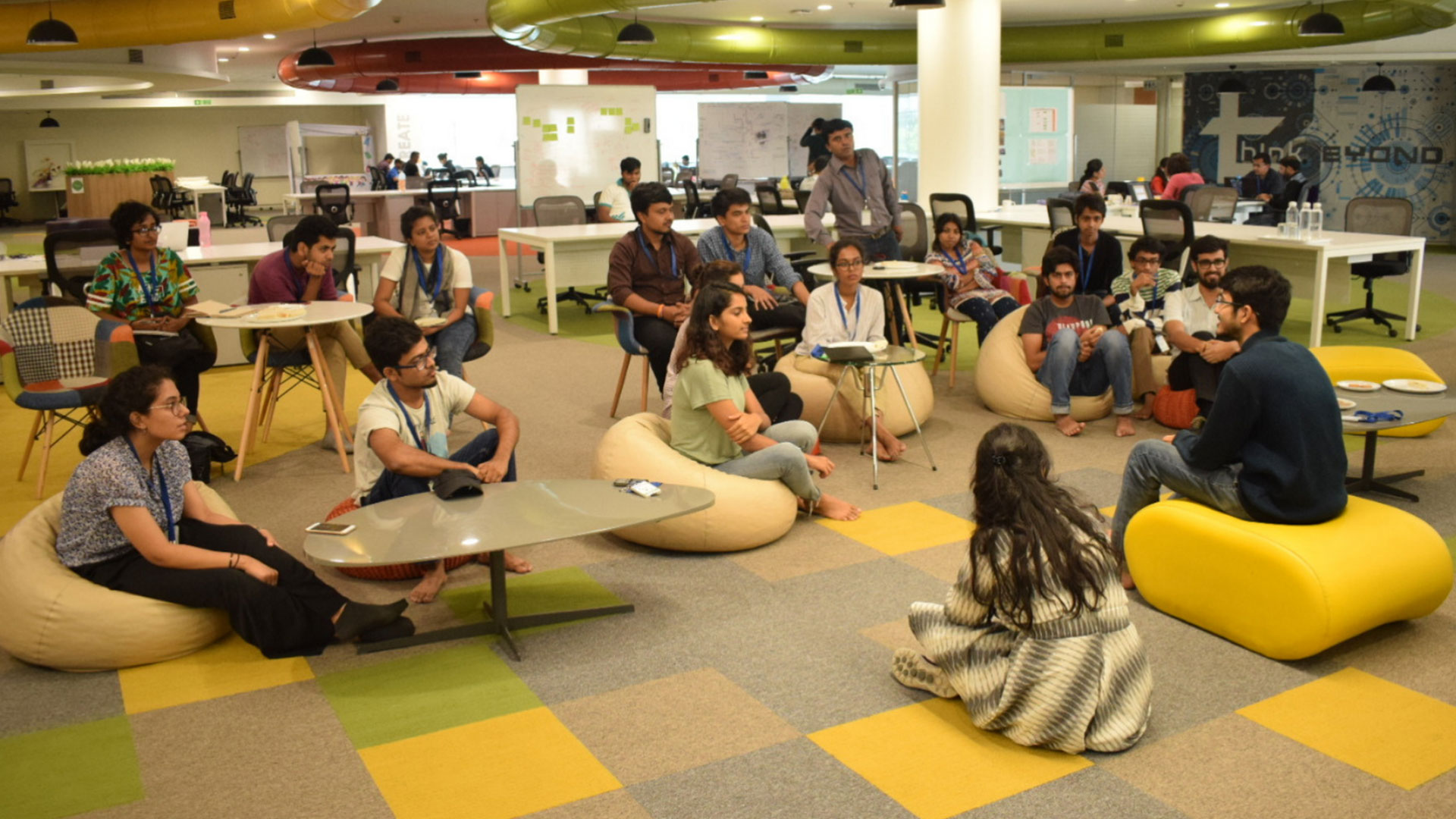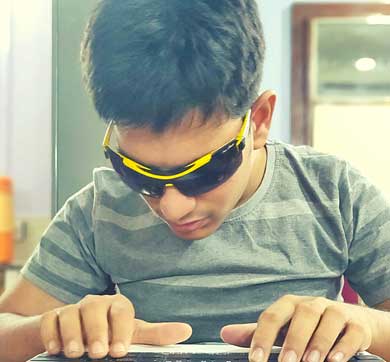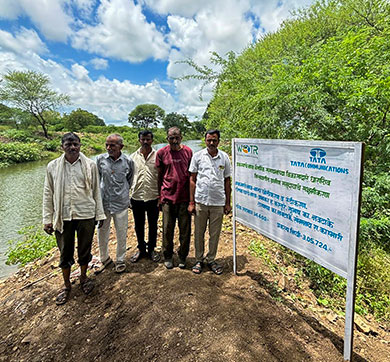January 2025 | 900 words | 3-minute read
TCS Foundation’s Digital Impact Square (DISQ) — an open social innovation initiative — has made it its mission to innovate for billions of people by encouraging bottom-up innovation among young innovators, transforming them into powerful agents of change.
“Somewhere inside all of us is the power to change the world.” This famous line from Matilda — a novel by celebrated children’s writer, Roald Dahl — is an apt reflection on the power of human endeavour and its capacity to move mountains cometh the hour. One such towering challenge was tackled on the banks of the river Godavari when 30 million people were expected to attend the Kumbh Mela in Nashik-Trimbakeshwar in 2015, posing enormous challenges to the local administration. Bringing together eminent researchers including Dr Ramesh Raskar from the Massachusetts Institute of Technology ‒ Media Labs and like-minded members of Nashik’s academia, local administration, researchers from TCS and the wider community, a not-for-profit organisation called Kumbhathon was formed in 2014. Innovators were encouraged to ‘spot’ opportunities, and ‘probe’ the feasibility of technological solutions targeting broad and deep social impact. Twelve innovations were eventually deployed at the Kumbh Mela the following year, which miraculously witnessed no loss of lives.
The resounding success of Kumbhathon paved the way for the formation of TCS Foundation’s Digital Impact Square (DISQ) — an open social innovation centre located in the city of Nashik, which encourages innovation through inclusive design by harnessing digital technologies to address the challenges prevalent in society. This initiative received immense support from N. Chandrasekaran, Chairman, Tata Sons, who was the then CEO & MD of TCS. By March 2016, DISQ was up and running, transforming Nashik into the perfect sandbox where innovators could test their solutions with the ecosystem.
The cycle of innovation
“At Digital Impact Square, we are committed to fostering a culture of innovation and collaboration among young social entrepreneurs. Our human-centric innovation framework, deep relationship with communities and ecosystem stakeholders empowers the innovators to address the most pressing social issues in India. By nurturing creativity, coaching from TCS and ecosystem mentors, we are enabling the next generation of innovators to create sustainable and impactful solutions driving positive change in our society," says Anil Sharma, Head, TCS Co-Innovation Network and DISQ, TCS. At the heart of DISQ lies its philosophy of humanising technology and using it as a means to tackle social challenges, designed for people who have not benefitted from several technology transitions. This philosophy operates at three levels: empathy maximisation, possibility maximisation and value maximisation and attempts to address questions such as understanding the needs of the people whose problems one is attempting to solve, devising innovations that are feasible in the ecosystem and delivering value.
Before any solution can see the light of day, it has to emerge through a rigorous innovation cycle at DISQ — under the mentorship of experienced professionals — that has distinct phases with definite timelines and expectations. These include the Spot phase where the right challenges are identified, the Probe phase where teams test their Minimum Viable Prototype on the field and undergo a jury selection process, the Grow phase where teams create products and business models and come up with their initial set of paying customers, and the Scale phase where teams exit DISQ by retaining their own IP, registering as for profit or non-profit social enterprises, and successfully sell their products and services across multiple locations.
A movement is born
Of the 700+ innovators (between the age group of 19-27 years) from 100+ cities across India who have been a part of DISQ, more than 85 of them have stayed the course, successfully transforming into changemakers. One life-altering example is Mouseware from Dextroware Devices, founded by Pravin Kumar (https://dextrowaredevices.com). An affordable head-mounted wearable device replete with tracking sensors, it enables hands-free control of computers and smartphones with simple head gestures and movements, replacing the traditional handheld mouse. Thanks to it, bomb blast survivor, Dr Malvika Iyer, can now type emails, respond to messages, and write scripts with ease. And therein lies the true measure of the success of DISQ. Its extraordinary ability to touch lives — all six million and counting.
DISQ success stories
Kibo by Trestle Labs
Co-founders: Akshita Sachedva and Bonny Dave
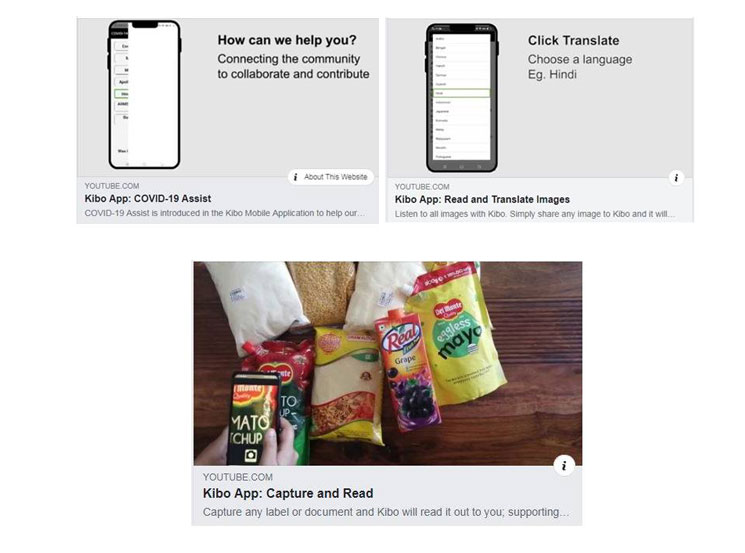
Kibo, an acronym for Knowledge In a Box, is India's first multi-lingual scanning and reading device designed for individuals with print and learning disabilities, which ensures real-time accessibility to printed, handwritten or digital content through audio, providing an inclusive and immersive learning experience for people with visual impairment. It offers solutions that help listen, translate, digitise and audio’tizeTM content across 60 global languages.
WALK by Lifespark Technologies
Founder: Amey Desai
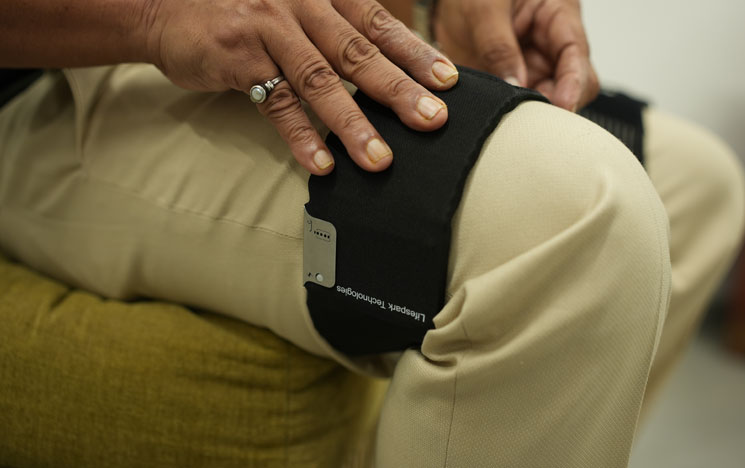
WALK is a wearable assistive device that uses muscle stimulation to enhance the walking abilities of Parkinson’s patients by reducing freezing of gait and falls, improving foot movement and balance, thereby increasing their mobility. It also features onboard sensors to collect data and track symptoms that could lead to falls, empowering individuals to maintain an active lifestyle without fear or stigma.
Godaam Innovations
Founder: Kalyani Shinde
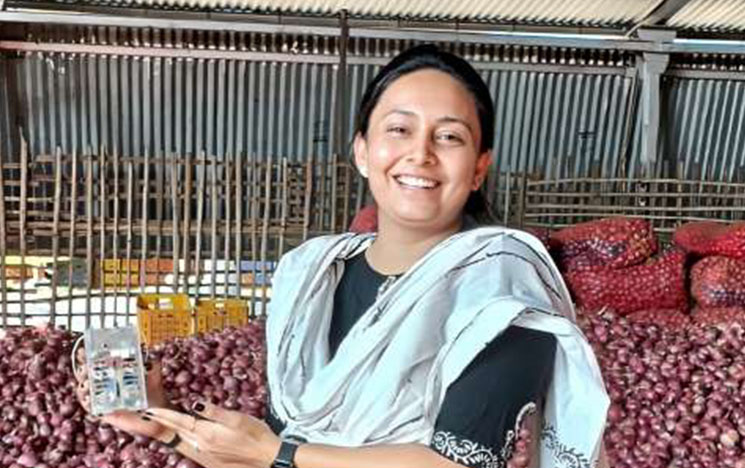
Godaam Innovations is working in the agri-tech space to stabilise the warehouse monitoring and crop storage ecosystem. It has created an loT device that provides farmers with information about micro-climate conditions in the warehouse by using sensors and early detection of onion rotting so that farmers can make informed decisions, thereby reducing losses.
https://www.godaaminnovations.com/
- Story by Sharmistha Choudhury




